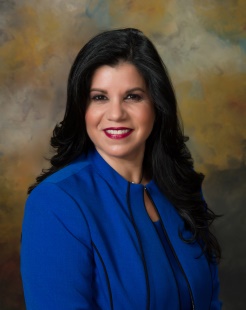
“Some people see the glass half-full. Others see it half-empty. I see a glass that’s twice as big as it needs to be.”
~George Carlin
How do you see your glass?
This metaphor applies to the Collaborative process. Collaborative professionals are continually expressing optimism by finding the positive in every situation and thinking that something positive will happen. The Collaborative Divorce Process is not only a mindset, but it is also an attitude. Better known as “the paradigm shift.”
What is the Paradigm Shift?

The paradigm shift is defined as a fundamental change in approach or underlying assumptions. As for lawyers, it is imperative that the attorneys make a paradigm shift from how they would typically act as adversarial trial counsel. This shift comes more easily to some lawyers than to others. What’s important to know in the process of learning collaborative behaviors, lawyers start to develop individualized styles of practicing collaboratively. There is no one size fits all because each lawyer is unique and different. Mastering this new skill of inner and outer transformations takes time. Collaborative lawyers need to focus their energies on the interests and goals of their clients, rather than on positions.
Interest-based negotiations help the spouses focus on the big-picture goals. For example, their shared goals may include keeping their minor children out of conflict or for both households to have financial stability.
In contrast, position-based or positional bargaining is the traditional method of bargaining. Divorcing spouses bargaining with this method each commit to a position early in the process. Typically, they think only of their own wants and needs. Such bargaining pits the spouses against one another as adversaries.

By understanding the differences, just one Collaborative professional can get the wheels turning to shift from an adversarial approach to a creative, constructive, family-focused approach. And, bringing on an interdisciplinary team of Collaborative professionals will heighten the process further.
My personal story…

It was 2012. I was sitting in a Parenting Coordination training class in Boca Raton, Florida. One woman in the class kept speaking about the Collaborative process every chance she’d get. At first, I didn’t understand why she was doing this. Now I do. This woman was passionate about a process, conceived in 1990, but not yet common practice in 2012. However, that didn’t stop her from passionately trumpeting the Collaborative process. This woman is Lana Stern, Ph.D., a licensed Psychologist and Licensed Marriage and Family Therapist, and co-President of the Collaborative Family Law Institute (CFLI).
I, on the other hand, was going through a horrific, high-conflict divorce and barely keeping my head afloat. Sitting in the training class, I did not even know what the Collaborative process was. Who would have thought, from my own negative experience, I would not only become an attorney, but would also become a Collaborative lawyer from the onset of my legal career.

Dr. Stern was one the Collaborative trainers who trained me in the Collaborative process. In fact, I remember emailing her that I might not be able to attend the morning training because I had a prior commitment. She quickly replied that I’d miss out on really valuable information if I didn’t make it. Somehow, she struck a nerve in me. I changed my appointment and made it to the training. The rest is history. When I arrived, Dr. Stern welcomed me with open arms. From the start, she made me feel like part of the team. This is the true definition of what a Collaborative professional relationship is all about on a deeper level.
Dr. Stern was instrumental in my decision-making to launch my career into the practice of Collaborative Law. Dr. Stern has been a beacon of light for me ever since. She provides awareness, guidance, resources, training and so much more to others about the Collaborative process and, “still” today, remains humble.

Everything in life starts with baby steps, and before you even know it, you’ll be running. That’s equally true for paradigm shifting.

How does the paradigm shift happen?
For starters, make a purposeful effort every day to reflect on a few basic questions as you transport yourself to place where you can call yourself a competent Collaborative lawyer. Basic everyday tasks may include taking a morning walk/run, preparing breakfast, driving to work, opening your mail, answering phone calls, meeting with your clients, picking up your children from school, just to name a few.
As you reflect, ask yourself:
1) Who am I?
2) Who is the client? Learn more about your client on a deeper level.
3) What is important to my client? Take the time to identify their goals and priorities.
4) How do I represent my client? From the start, choose to embrace the Collaborative process over the conventional litigation route.
You’ll find over time that all the pieces will come together methodically as you embrace the paradigm shift mindset. Once you have that paradigm shift from adversarial to collaborative, you’ll be able to broaden the use of the Collaborative process into other areas of law such as:
• Estate planning;
• Civil disputes;
and more.
Under section 61.56(5), Florida Statutes, the term “collaborative matter” includes, but isn’t limited to:
(a) Marriage, divorce, dissolution, annulment, and marital property distribution.
(b) Child custody, visitation, parenting plan, and parenting time.
(c) Alimony, maintenance, and child support.
(d) Parental relocation with a child.
(e) Parentage and paternity.
(f) Premarital, marital, and postmarital agreements.
As you can see the laws lay the foundation for the Collaborative process in family law matters, but there are so many more possibilities to apply the Collaborative process to make a mark in the world on how we, as Collaborative professionals, can resolve conflict. I, for one am creating my legacy as I embrace the worldwide Collaborative movement.
So, what’s your “Why”?
Take a moment to reflect to think about why you practice the Collaborative process. Your “why” is a statement of purpose that describes why you do the work you do and why you live the lifestyle you do. In other words, it is your calling. It is your conviction. May I suggest you take a blank piece of paper and write down your “why.” And maybe you can even read what you’ve written out loud for the universe to hear it.
Back to that glass. Are you an optimist or a pessimist? Your answer may not be as clear-cut as you believe.
Optimists are happier, healthier, and do better with practicing the work they love to do.

Pessimists have a negative bias. They believe things will not work out in their favor even when they have no idea of the outcome.
Which one is better for you, your client, and your team?
Let’s go back in time to my encounter with Dr. Lana Stern, and how she changed the course of my life. It all began with being open to the paradigm shift, taking that first step after listening to her, and believing the glass was not and is not yet completely filled. There is room to fill the glass with what you know is right. Lana most certainly helped me believe that!
Dr. Lana Stern’s Perspective

Betsy – “The Power of One”. I am so happy to think that I was instrumental in your journey to becoming a Collaborative Professional. I was, and still am so excited about the process. I wanted to let everyone know about this new alternative dispute resolution method to resolving conflict instead of litigation because there seemed to be so little information out there or even acknowledgement about it. I’m glad you were listening. At the Introductory Collaborative training, I still remember your active participation, excitement and the enthusiasm that you demonstrated.
You are a wonderful example of how one person’s passion can influence another. You and your fellow classmates are now on the verge of graduating from the prestigious Florida Academy of Collaborative Professionals (FACP) Leadership Institute and will assume the role of leading the new and future generations of Collaborative professionals. Already you have distinguished yourself as founder and president of a new practice group – Hispano Collaborative Professionals™ (HCP) – a group dedicated to helping an underserved population in Miami, Florida. Hopefully, it will be a model for other underserved groups in Miami and statewide. As you continue your journey as an advocate and leader of the Collaborative Process, I hope that your passion and leadership will continue to guide others into making the commitment to become a Collaborative professional.

“Deeper Collaborative professional relationships lead to Collaborative cases with ease, efficiency and cost-effectiveness”
~Betsy Vázquez, Collaborative Lawyer
Betsy Vázquez

Betsy Vázquez is fluent in Spanish and English, a Collaborative Family Law Lawyer, Personal Family Lawyer® and Florida Supreme Court Certified Family Mediator since 2010. In addition, she practices in the field of Estate Planning before, during and after divorce, Elder Law, is a Parenting Coordinator, and a Florida Supreme Court Certified County Mediator. Betsy is the Founder and President of Vázquez Law, PLLC law firm, Mediate4Peace, LLC mediation practice and Hispano Collaborative Professionals™ (HCP) practice group in Doral (Miami-Dade County), Florida. HCP is a nationwide, not-for-profit Collaborative organization and the only Hispanic Collaborative practice group in the state of Florida dedicated to providing legal services by way of the Collaborative process to the Hispanic community and the general public. Betsy is a Board member to the Collaborative Family Law Institute (CFLI), a member to the Collaborative Professionals of Southwest Florida (CPSWF), an active member to the Florida Academy of Collaborative Professionals (FACP) Research Committee, FACP 3rd Leadership Institute graduate, and an active member to the International Academy of Collaborative Professionals (IACP) Membership Committee. She works with clients throughout the state of Florida to help with divorce, temporary wills, ancillary documents, trusts post-divorce, pre-marital and post-nuptial agreements, parenting plans and other matters impacting families. On a personal note, Betsy is a native Floridian of Hispanic descent, and a loving mother to three children.
Recent Comments